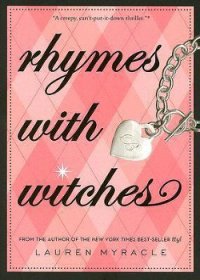The Silver Chair - Lewis Clive Staples (читать полные книги онлайн бесплатно .txt) 📗
“Do they grow here?” Scrubb asked the Warden. He seemed very surprised at being spoken to, but replied, “No. They are all beasts that have found their way down by chasms and caves, out of Overland into the Deep Realm. Many come down, and few return to the sunlit lands. It is said that they will all wake at the end of the world.”
His mouth shut like a box when he had said this, and in the great silence of that cave the children felt that they would not dare to speak again. The bare feet of the gnomes, padding on the deep moss, made no sound. There was no wind, there were no birds, there was no sound of water. There was no sound of breathing from the strange beasts.
When they had walked for several miles, they came to a wall of rock, and in it a low archway leading into another cavern. It was not, however, so bad as the last entrance and Jill could go through it without bending her head. It brought them into a smaller cave, long and narrow, about the shape and size of a cathedral. And here, filling almost the whole length of it, lay an enormous man fast asleep. He was far bigger than any of the giants, and his face was not like a giant's, but noble and beautiful. His breast rose and fell gently under the snowy beard which covered him to the waist. A pure, silver light (no one saw where it came from) rested upon him.
“Who's that?” asked Puddleglum. And it was so long since anyone had spoken, that Jill wondered how he had the nerve.
“That is old Father Time, who once was a King in Overland,” said the Warden. “And now he has sunk down into the Deep Realm and lies dreaming of all the things that are done in the upper world. Many sink down, and few return to the sunlit lands. They say he will wake at the end of the world.”
And out of that cave they passed into another, and then into another and another, and so on till Jill lost count, but always they were going downhill and each cave was lower than the last, till the very thought of the weight and depth of earth above you was suffocating. At last they came to a place where the Warden commanded his cheerless lantern to be lit again. Then they passed into a cave so wide and dark that they could see nothing of it except that right in front of them a strip of pale sand ran down into still water. And there, beside a little jetty, lay a ship without mast or sail but with many oars. They were made to go on board her and led forward to the bows where there was a clear space in front of the rowers' benches and a seat running round inside the bulwarks.
“One thing I'd like to know,” said Puddleglum, “is whether anyone from our world—from up-a-top, I mean has ever done this trip before?”
“Many have taken ship at the pale beaches,” replied the Warden, “and-”
“Yes, I know,” interrupted Puddleglum. “And few return to the sunlit lands. You needn't say it again. You are a chap of one idea, aren't you?”
The children huddled close together on each side of Puddleglum. They had thought him a wet blanket while they were still above ground, but down here he seemed the only comforting thing they had. Then the pale lantern was hung up amidships, the Earthmen sat to the oars, and the ship began to move. The lantern cast its light only a very short way. Looking ahead, they could see nothing but smooth, dark water, fading into absolute blackness.
“Oh, whatever will become of us?” said Jill despairingly.
“Now don't you let your spirits down, Pole,” said the Marsh-wiggle. “There's one thing you've got to remember. We're back on the right lines. We were to go under the Ruined City, and we are under it. We're following the instructions again.”
Presently they were given food—flat, flabby cakes of some sort which had hardly any taste. And after that, they gradually fell asleep. But when they woke, everything was just the same; the gnomes still rowing, the ship still gliding on, still dead blackness ahead. How often they woke and slept and ate and slept again, none of them could ever remember. And the worst thing about it was that you began to feel as if you had always lived on that ship, in that darkness, and to wonder whether sun and blue skies and wind and birds had not been only a dream.
They had almost given up hoping or being afraid about anything when at last they saw lights ahead: dreary lights, like that of their own lantern. Then, quite suddenly, one of these lights came close and they saw that they were passing another ship. After that they met several ships. Then, staring till their eyes hurt, they saw that some of the lights ahead were shining on what looked like wharfs, walls, towers, and moving crowds. But still there was hardly any noise.
“By Jove,” said Scrubb. “A city!” and soon they all saw that he was right.
But it was a queer city. The lights were so few and far apart that they would hardly have done for scattered cottages in our world. But the little bits of the place which you could see by the lights were like glimpses of a great seaport. You could make out in one place a whole crowd of ships loading or unloading; in another, bales of stuff and warehouses; in a third, walls and pillars that suggested great palaces or temples; and always, wherever the light fell, endless crowds—hundreds of Earthmen, jostling one another as they padded softly about their business in narrow streets, broad squares, or up great flights of steps. Their continued movement made a sort of soft, murmuring noise as the ship drew nearer and nearer; but there was not a song or a shout or a bell or the rattle of a wheel anywhere. The City was as quiet, and nearly as dark, as the inside of an ant-hill.
At last their ship was brought alongside a quay and made fast. The three travellers were taken ashore and marched up into the City. Crowds of Earthmen, no two alike, rubbed shoulders with them in the crowded streets, and the sad light fell on many sad and grotesque faces. But no one showed any interest in the strangers. Every gnome seemed to be as busy as it was sad, though Jill never found what they were so busy about. But the endless moving, shoving, hurrying, and the soft pad-pad-pad went on.
At last they came to what appeared to be a great castle, though few of the windows in it were lighted. Here they were taken in and made to cross a courtyard, and to climb many staircases. This brought them in the end to a great murkily lit room. But in one corner of it—oh joy!—there was an archway filled with a quite different sort of light; the honest, yellowish, warm light of such a lamp as humans use. What showed by this light inside the archway was the foot of a staircase which wound upward between walls of stone. The light seemed to come from the top. Two Earthmen stood one on each side of the arch like sentries, or footmen.
The Warden went up to these two, and said, as if it were a password:
“Many sink down to the Underworld.”
“And few return to the sunlit lands,” they answered, as if it were the countersign. Then all three put their heads together and talked. At last one of the two gnomes-in-waiting said, “I tell you the Queen's grace is gone from hence on her great affair. We had best keep these top dwellers in strait prison till her homecoming. Few return to the sunlit lands.”
At that moment the conversation was interrupted by what seemed to Jill the most delightful noise in the world. It came from above, from the top of the staircase; and it was a clear, ringing, perfectly human voice, the voice of a young man.
“What coil are you keeping down there, Mullugutherum?” it shouted. “Overworlders, ha! Bring them up to me, and that presently.”
“Please it your Highness to remember,” began Mullugutherum, but the voice cut him short.
“It pleases my Highness principally to be obeyed, old mutterer. Bring them up,” it called.
Mullugutherum shook his head, motioned to the travellers to follow and began going up the staircase. At every step the light increased. There were rich tapestries hanging on the walls. The lamplight shone golden through thin curtains at the staircase-head. The Earthmen parted the curtains and stood aside. The three passed in. They were in a beautiful room, richly tapestried, with a bright fire on a clean hearth, and red wine and cut glass sparkling on the table. A young man with fair hair rose to greet them. He was handsome and looked both bold and kind, though there was something about his face that didn't seem quite right. He was dressed in black and altogether looked a little bit like Hamlet.



